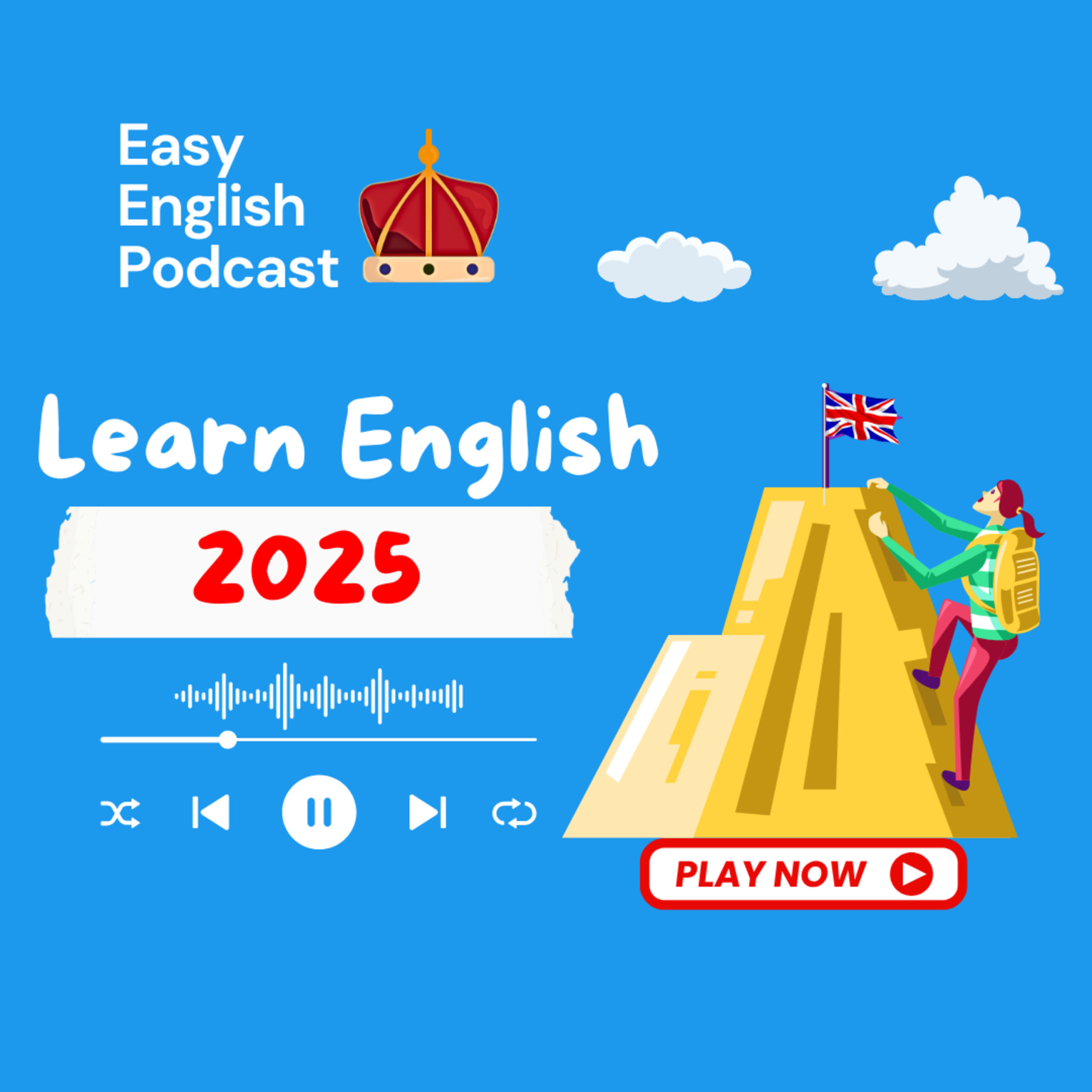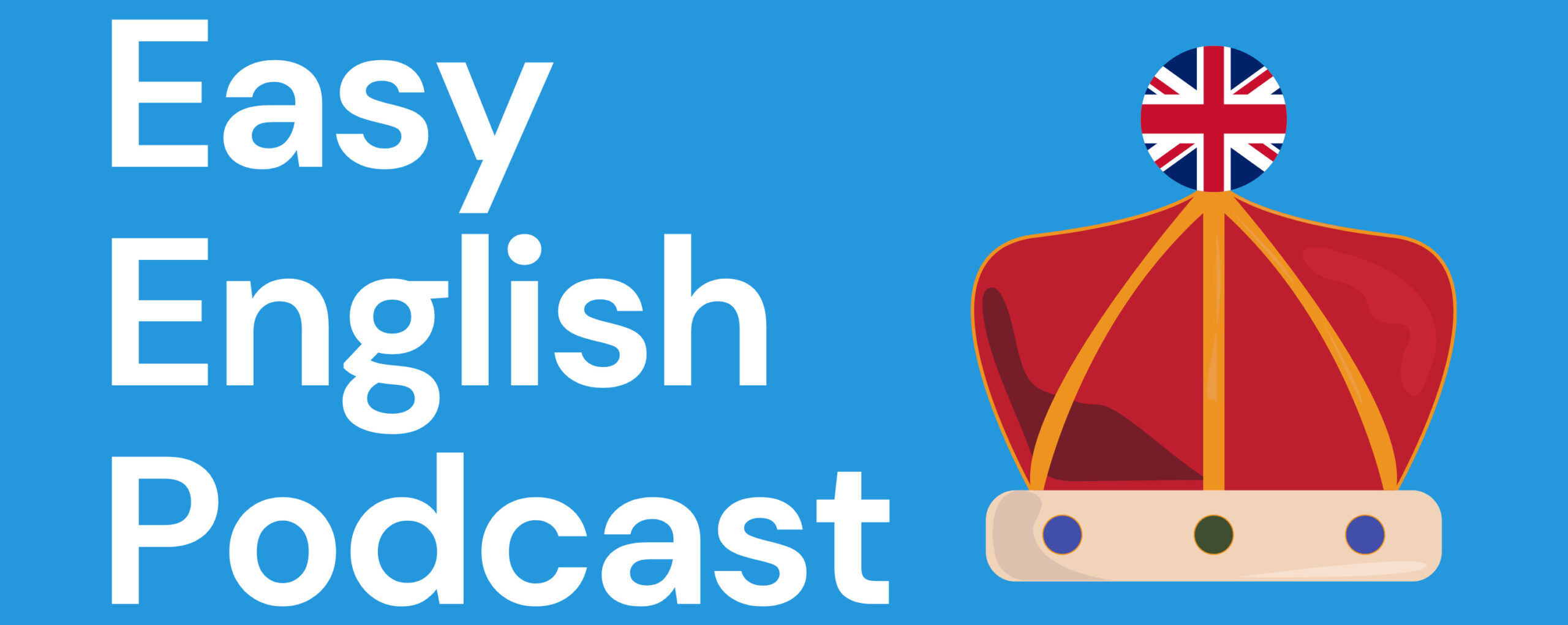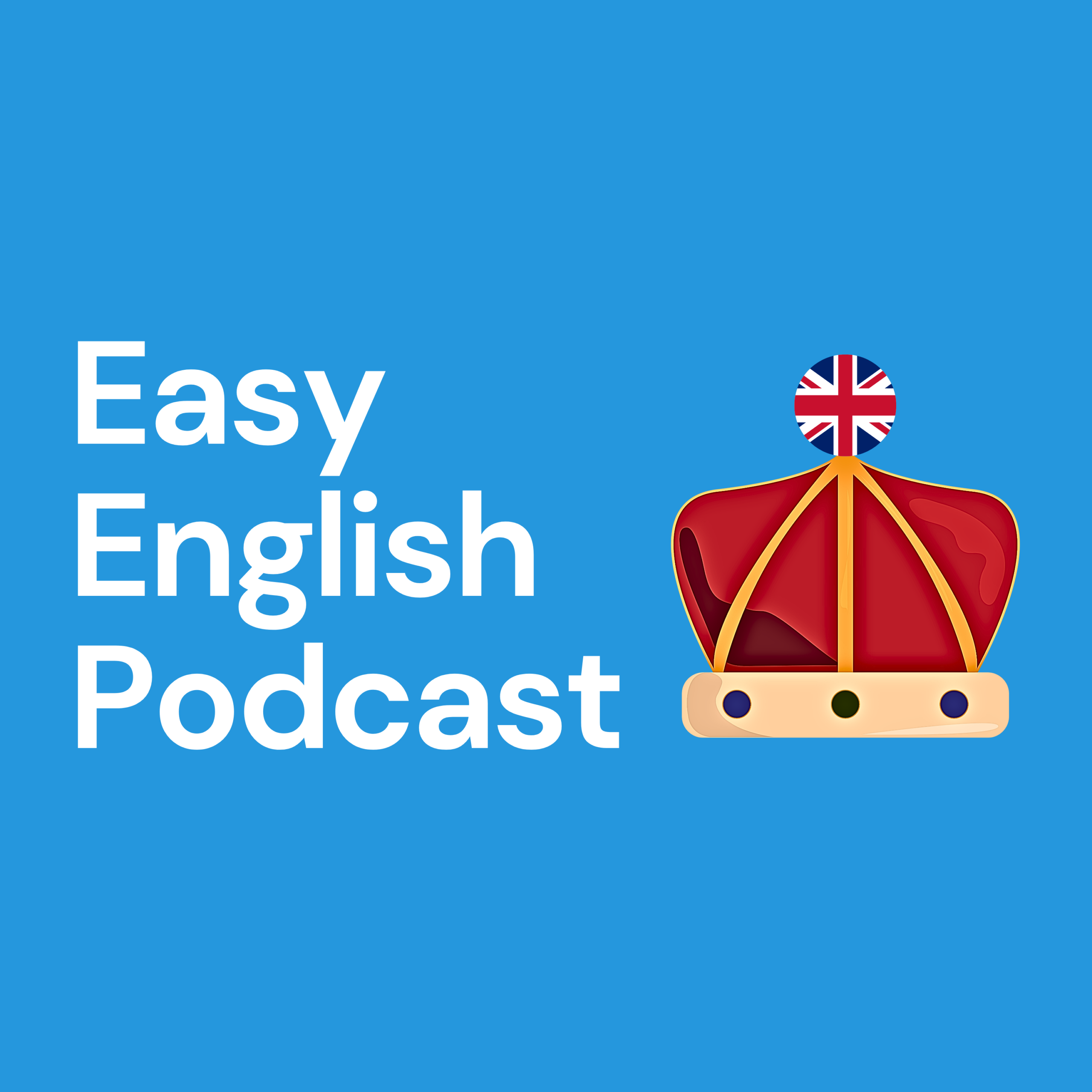
How To Learn English in 2025
Hey everyone, and welcome back to another episode of Easy English. I’m Oliver, and today we are going to talk about how to learn English in 2025.
So, it’s that time of the year again. It’s January when I’m recording this—January 2025. New Year, and usually around this time of year, people start to think about maybe improving themselves, increasing their self-development, and starting to work a little bit harder.
This is a great time to create or improve your language learning routine, whether you’re just starting to learn English or you’ve been studying it for a long time. In this episode, I’m going to share tips to help you make good progress with English this year. So, let’s get started.
First off, I want to wish you all a Happy New Year. I really hope that this year is amazing for you, both with your English goals and your life in general.
That brings us to goals. At our first point, the first section I want to talk about is setting clear goals for this year. If you want to actually improve your English, you need to know what you’re working towards, why you’re learning English, and what you want to achieve from your learning.
A good goal is something that we call specific, measurable, and realistic. “Specific” simply means clear and detailed. “Measurable” means that we can measure it so we can look at how well we’ve done and see the results. “Realistic” is something that is possible to do.
So, let’s say, to be specific, instead of saying, “I want to speak better English,” you could set the goal that you want to have a 10-minute conversation in English by April, for example. That’s a specific goal, and you’ll know that once you can do that, you have made progress—you’ve reached that goal. I think that’s a great goal.
Another specific goal you might have is, “I will learn 10 new words every week and try to use them in sentences.” It’s very specific and measurable. You can check each week if you have learned those 10 words. This might sound basic, but honestly, it really helps.
There have been so many times in my life when I’ve been learning languages and I have a general goal. For example, you might think, “I just want to be better at English.” But how? How do you want to be better? You need to think about this and think about the specific ways you want to improve.
When we’re looking at “measurable,” that ties into “specific.” If something is defined and clear, it’s specific, then you can measure it.
Finally, the last point about goals is to be realistic. This is so, so important. Being realistic is the difference between not completing something and making good progress.
For example, if I said, “I want to do one hour of English every single day, seven days a week,” I know that for me, that is not realistic—if I was learning English, for example—because I have a job, I have a lot of things on during the week, and one hour every day is too much.
If I said, “I want to do 20 minutes five days per week, with a couple of days’ break,” that is a much more realistic goal for me. That is so important. Choose realistic goals. Don’t put too much pressure on yourself with unrealistic goals because you will really not enjoy it. It will feel like— for lack of a better word—work, too much work. You’ll constantly feel like you’re fighting against these unrealistic targets.
Now, next after goals, you want to start to build a routine. A routine is a set of actions that you do regularly. To learn English effectively, it is probably better to have a routine to study a little bit every day rather than a lot once.
In my opinion, it’s much better to do 10 minutes per day than one hour every week. Of course, you could have a one-hour lesson every week and then do a little bit of self-study every day, too. But don’t do it all on one day. Make sure that you have some regular, small practice every day.
Not to self-promote, but this podcast, for example, is a great way, in my opinion, for people to get that little bit of listening practice and vocabulary practice every single day or a couple of times a week.
Here’s an example of a routine, which I think is quite good for daily learning. This doesn’t include lessons or course books or anything like that.
Here’s an example:
Spend 10 minutes reviewing vocabulary in the morning. This could be while you’re eating your breakfast, maybe on the train or public transport, or even walking to work.
Listen to an English podcast while commuting or walking. Maybe you learn some vocabulary while you eat your breakfast, and then when you’re walking to work or school, or on the bus or train—or even driving—you could listen to an English podcast.
Between those two things, you’ve already done 20 minutes of practice in some form, and that adds up over the working week. You’re talking, what, 100 minutes of practice? One hour and 40 minutes—that’s almost two one-hour lessons, just from doing those tiny little bits each day.
Finally, write a short diary entry in English at night. This is something I highly recommend as a routine, even on your phone. In the notepad on your phone, just write a little summary every evening before you go to bed about what you did. Write it in English. It’s a great way to improve your ability to describe things and even to tell stories.
A lot of people underestimate this, but writing about your routine and your day is a fantastic way to practice your English—your writing, your thought process, your sentence building, all of that.
The key is consistency. Be consistent, and that means doing something regularly without stopping. To be consistent, you need to make a routine that suits you—a routine that is realistic and helps with the goals you have set. Your routine should be unique to you, your schedule, and your goals.
Some New Words:
Routine: A set of actions done regularly.
Consistency: Doing something regularly without stopping.
Realistic: Something possible to do; practical.
Self-development: Efforts to improve yourself, such as skills or habits.

